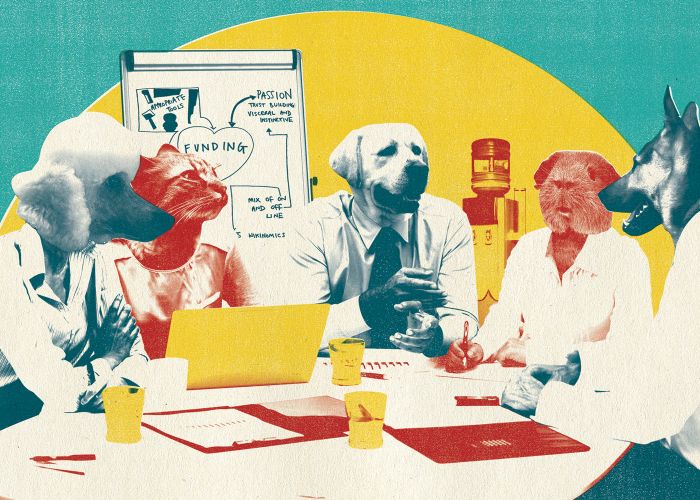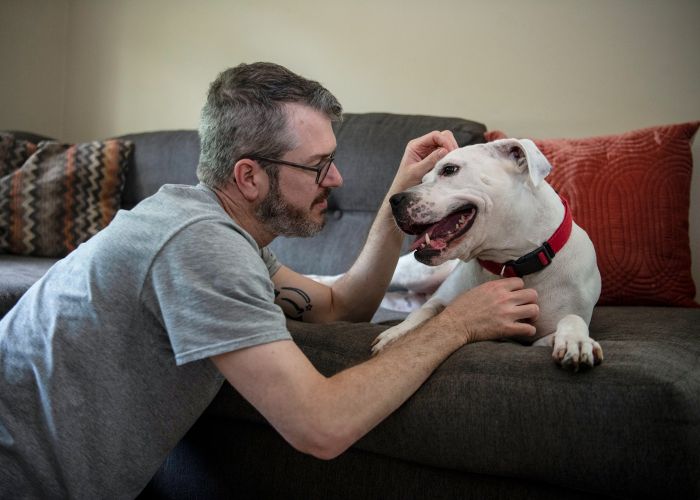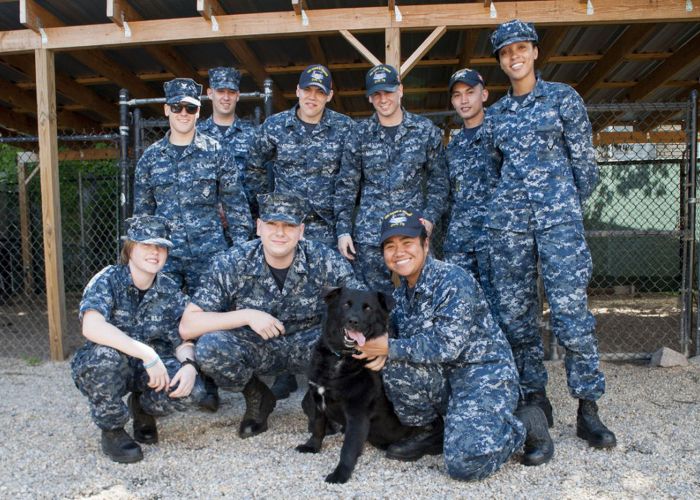True grit
Undercover investigators confront the challenges of a life in the shadows
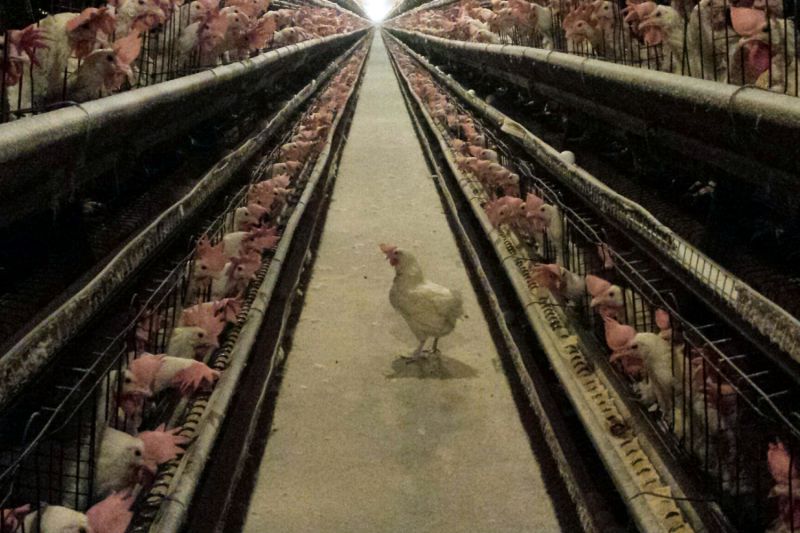
On paper, Amy Winter looks like a drifter: someone who moves from town to town, taking one menial job after another, never staying put in one place long.
Over the past four years, she’s worked at two industrial pig farms, two commercial dairies, a calf ranch, a tiger breeding facility, a horse training stable and three research laboratories. She’s visited nearly every puppy-selling pet store in New Jersey and puppy mills in North Carolina, Minnesota and Pennsylvania.
Her homes have been a series of budget motels on the outskirts of rural communities across the country. She’s a perpetual outsider, the new person in town with a carefully crafted back story and no plans for making long-term friends.
Only a few of her family members know that Winter’s real job is working as an undercover investigator for The HSUS. All her high school and college friends have 9-to-5 jobs and don’t understand why she’s gone for months on end, why she can’t pop home for holidays and special occasions, and why she doesn’t keep in touch through Facebook. Few of her HSUS colleagues know her real name: Amy Winter is the pseudonym she uses to protect her cover.
It’s a lonely lifestyle, and a physically grueling one. A typical workday is a backbreaking 10- or 12-hour shift followed by several hours in a motel room completing each day’s log, uploading video footage and checking in with her HSUS supervisor. On top of the physical exhaustion, there’s the perpetual fear of being caught and the witnessing of constant cruelty.
“Be prepared to send your emotions on a roller coaster ride,” she warns new investigators, “because you’re going to be on one. You’re going to get incredibly attached to these animals, and you’re going to have to watch them suffer at some point or another.”
Growing up, Winter considered herself an animal lover, but she had little exposure to animal protection issues. “I never thought much about it,” she admits. Fresh out of college, she happened upon an online ad seeking an animal cruelty investigator.
It sounded interesting, like something she might try for six months or so while she figured out her next career steps.
“As I got used to the job, I was like, ‘Oh my gosh, I can’t believe how much cruelty there is,’” she says. “I couldn’t believe it.”
Winter had never seen an undercover video before she applied for this job. Now she’s one of the people behind the camera, capturing realities that the rest of the world finds hard to watch.
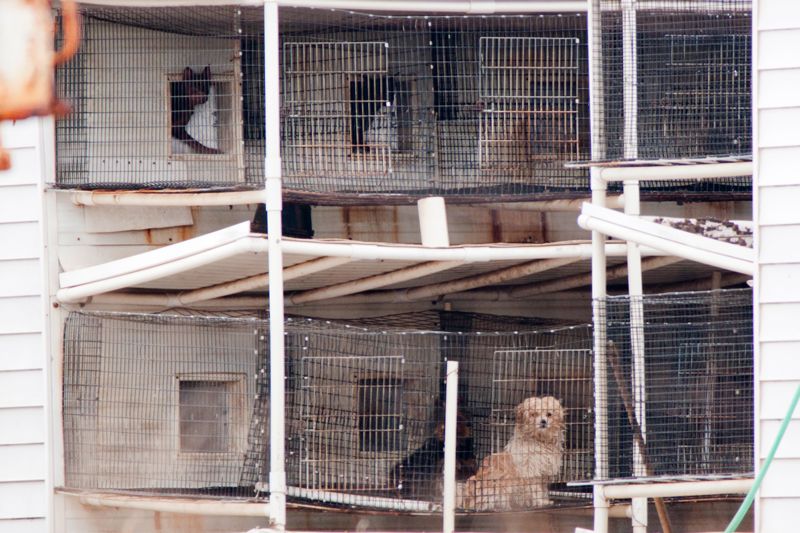
Deep advocacy
It’s a basic tenet of social reform movements: To combat injustice, you first have to expose it.
And sometimes “the only way to know what really goes on is to get on the inside,” says Mary Beth Sweetland, senior director of investigations for The HSUS.
Working from her home office in Vermont, surrounded by her five rescue dogs, Sweetland serves as a mentor to a cadre of investigators scattered across the country. Every day, she reviews their video footage, photographs and written notes. She talks with them on the phone, giving advice and discussing nuances of the law. For investigators’ first cases, she’ll usually talk with them every day.
But with all the moral support she provides, Sweetland doesn’t sugarcoat the challenges of this job. When hiring new investigators, she first has applicants watch videos from past investigations. Then she asks some tough questions. “Can you imagine being in a sow barn where the smell is so bad you want to retch the minute you’re in there? Do you mind getting your hands and feet covered in feces? Do you mind blood and guts?”
And she shares another reality: “This is not a career,” she tells each candidate. “It is a job that you will have for at the most a couple of years. You just can’t consider it a career. You’ll either be outed by the industry, as several of our people have been, or you will get good and sick and tired of watching animals suffer while you videotape it.”
All in all, Sweetland sums up her candidate-screening process this way: “I try to dissuade them from taking the job, and if I can’t, I’ll give them a chance.”
It’s not that Sweetland doesn’t need investigators. But undercover investigations are time-consuming and expensive. Each case can require weeks of preparation by the HSUS investigations team and other staff. They may sort through hundreds of shipping manifests to figure out which puppy mills are supplying particular pet stores or which exotic animal breeders are selling to roadside zoos and captive hunt operations. They pore over U.S. Department of Agriculture reports, consumer complaints and industry websites. They talk with whistleblowers, anonymous tipsters and neighbors of properties where animals are being abused.
By the time the investigator shows up and applies to work at the target facility, the organization has already invested significant time and resources into the operation. Everyone is counting on the investigator to do a good job.
That requires more than collecting random pictures and videos of suffering animals. Investigators must meticulously gather evidence to establish a case that will withstand common industry defenses—such as claims that any abuses captured on film were an aberration, that it was all due to a “few bad apples” among the workers, that managers or owners were unaware of the cruelty. They troubleshoot equipment failures and figure out how they can position their bodies to get better shots. They must win the trust of their co-workers in order to gain access to key areas. And throughout it all, they need to be careful not to blow their cover.
Working undercover at a target facility means “you have a lot of opportunity to capture the day-to-day horror, but you also have more days to be outed or caught videotaping,” Sweetland says. “It’s a really nerve-wracking job, and I admire investigators who can pull this off and stick with it and not want to give up after two to three weeks.”
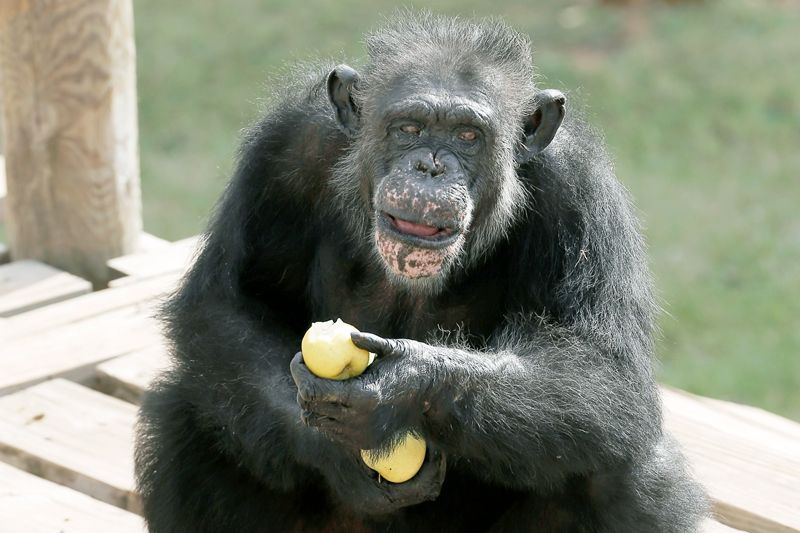
Secret lives
Part of Sweetland’s job is choosing people with the fortitude to stick it out.
Most undercover investigators are in their 20s or 30s—capable of doing hard physical labor, able to blend in with their co-workers and free of the commitments that would make constant travel impossible.
Beyond that, Sweetland looks for people who listen more than they talk, are confident but not cocky, cautious but not timid. Too much fear can mean someone is too “psychologically freaked out” to do the job, she says. Too little fear can mean someone takes unnecessary risks.
Animal-handling skills are a big plus, because an investigator may need to carry 100-pound calves from one pen to another, as Winter has done, or avoid getting kicked while working with horses who are afraid and in pain. Winter has done that, as well, during the eight months she spent as a stable hand at a training barn for Tennessee walking horses. To document the illegal practice of soring—in which caustic substances are applied to horses’ hooves and legs to trigger an artificial high-stepping gait—she secretly collected pieces of the wrappings around the horses’ legs for laboratory analysis.
People-handling skills are also important. In some jobs, the investigator will be working among “a rough crowd,” says Whitney Warrington, a former undercover investigator who now helps manage HSUS investigations. “I try to tell all of our women who come through that they need to be aggressive and learn how to look at people and just say f— off.”
Investigators need a deep empathy for animals balanced with a hefty dose of pragmatism. “You don’t take this job to rescue animals,” says Warrington. “You just can’t, because sometimes you don’t get to save the animals at all. As much as you want to step in, or you want to grab that piglet and shove him under your coat and run, you can’t do it.”
It’s an eye-on-the-prize situation—working with the belief that your findings will be leverage for winning better treatment for animals in the future. But this can be hard to accept when you’re on a job and surrounded by animals for whom any reform measures will likely come too late.
Emotional resilience is essential. Investigators often struggle with feelings of guilt—not only for the animals they couldn’t save, but for the friends and family members they’ve lost touch with and even the co-workers they befriended on assignments.
Warrington still thinks about a woman she met five years ago during her first undercover investigation at a Wyoming hog factory farm. She was the co-worker who was nicest to her, the one who told other people she was cool. She seemed to care about the animals and yelled at people who were especially cruel. But on a bad day, when the frustration of the job got to be too much, the same woman picked up a piglet and threw the animal across the room, where he hit his head on a metal feeder. When the woman and eight other co-workers were prosecuted for animal cruelty, Warrington testified in court against her friend.
“You just don’t get to contact those people and say, ‘I was just doing my job, and I thought you were one of the better people,’” she says. “If you start thinking about it, it really starts to tear you up inside.”
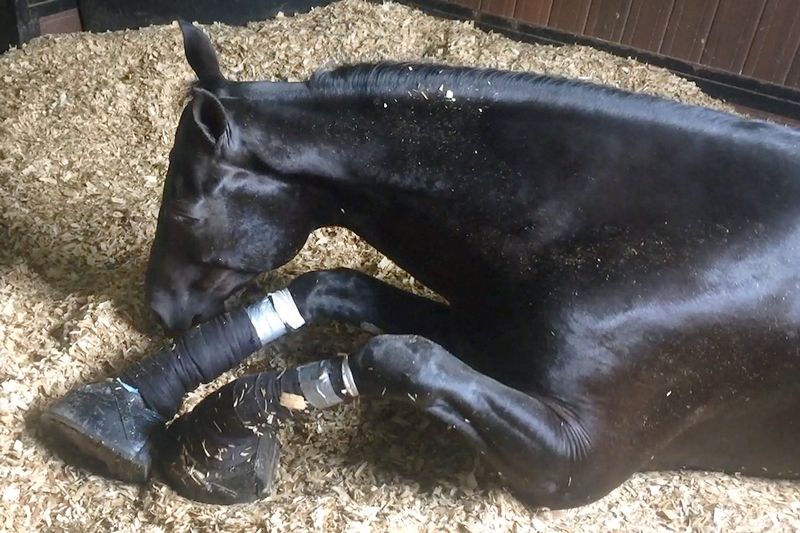
Out of the shadows
At some point, investigators need the wisdom and self-awareness to know when it’s time to leave the undercover life.
For Cody Carlson, that realization came after two years as an undercover investigator—first for Mercy For Animals, an international farm animal advocacy nonprofit, and later for The HSUS.
It wasn’t a job he’d ever envisioned for himself. In college, he planned to be a journalist. After graduate school, he took a position at a corporate intelligence firm. “I was on track for the corporate lifestyle,” he says. “I had a really promising job, and I [was in] a good relationship.” Still, he couldn’t escape the feeling that he needed to do something more meaningful.
When he started as an investigator in 2008, it felt like an adventure: “You’re a spy for the good guys,” he says.
But it was never easy and never glamorous. During his first month with The HSUS, he worked at two pet shops in New York City, documenting the delivery of sick and filthy puppies from Midwestern mills. One of the stores was an independent business that displayed the puppies in cute baby beds with name tags. “People thought they were going to a nice small store,” he says, and staff were instructed to deny any connection with breeding mills and to say that all the dogs came from family breeders.
Afterward, he visited more than 40 puppy mills in three Midwest states. Getting hired at puppy mills is notoriously hard (if owners are willing to pay anyone to help care for the dogs, they tend to choose family members), so Carlson did a series of what Sweetland calls “hit-and-runs”—where investigators show up at commercial breeding operations in rural areas and talk their way into a tour of the facility.
Some mills were massive operations with hundreds of animals living in stacked wire cages; they reminded him of factory farms. Others were home businesses in remote rural areas, where dogs lived in ramshackle cages made of plywood and chicken wire, completely exposed to the elements. Every place was “horrible,” he says, run by people who viewed “their animals as nothing more than commodities they can make money off of, with little or no regard for their welfare.”
This wasn’t even the worst suffering he witnessed. On other assignments, he saw birds slowly dying in the manure pits at industrial egg factories, calves freezing to death outside veal slaughter plants, and breeding pigs locked in gestation crates, “going slowly crazy.” He remembers working at massive egg-laying operations, surrounded by “a fog of ammonia wherever you go” and a stench that “burns at your lungs and your eyes.”
During one of his last undercover jobs, he was part of the depopulation crew at an egg factory farm in Iowa, tasked with removing older hens from their cages and sending them to slaughter. After several weeks, he developed a repetitive stress injury. “A muscle popped out on my wrist,” he says. “I could barely move my hand.” He’d lost weight and was having recurring nightmares. “I started to feel that if I did [undercover work] much longer, the toll it would have taken on me would have been too great.”
By the time he quit, he no longer had a girlfriend, and after everything he’d seen, he knew he couldn’t go back to corporate life. He decided to help animals in a different way and applied to law school.
Today, Carlson is an attorney for Mercy For Animals, and the nightmares that once plagued him are gone. He looks back on his time as an undercover investigator as both the most difficult period of his life and the most important work he’ll ever do.
“It taught me that it’s possible that you really can make a difference as one person,” he says. “It gave me the confidence to pursue activism in general. It’s a really rewarding way to live your life, in service to animals.”
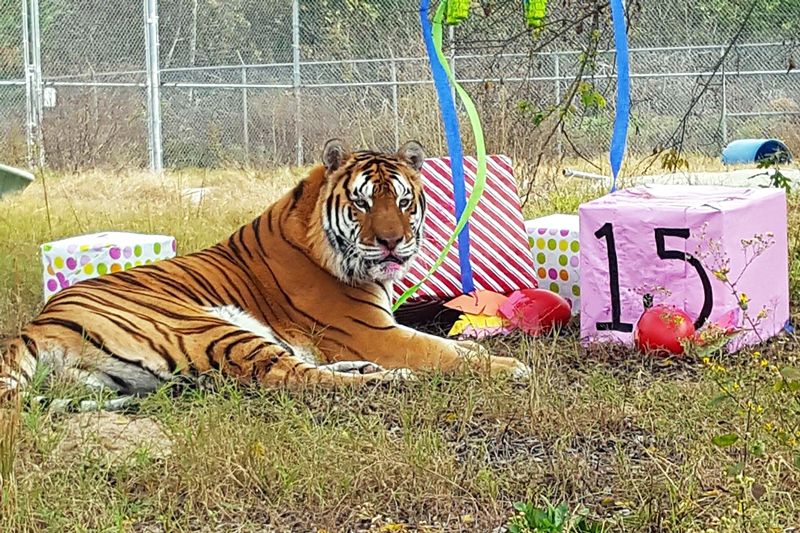
Bittersweet victories
For investigators, the biggest rewards typically come in the aftermath of their cases—with laws passed, abusers prosecuted, a public outraged, even businesses shut down.
But clear-cut successes aren’t guaranteed. Sometimes local prosecutors refuse to pursue charges, while government agencies drag their heels on taking any action. Reforms are often incremental and can take years to be implemented. There can be lawsuits and countersuits and gag orders that stall an investigation from becoming public.
Every year can bring galvanizing successes and heartbreaking disappointments. But no matter the outcome of a case, Winter says she finds consolation in the ways she was able to improve the animals’ lives—even if it was just making sure they always had fresh water or someone who treated them gently. “For all the cases of mine,” she says, “I felt I made some impact on the animals, which means the world to me.”
One of those animals was a hound mix she called Shy Guy. In 2013, he and five other dogs were being used in painful and unnecessary dental implant experiments at a research laboratory at Georgia Regents University (now called Augusta University).
By the time Winter was hired as an animal caretaker at the lab, the dogs had undergone surgery to have their teeth removed and the implants inserted into their jaws. For more than five months, they lived in barren chain-link kennels with grated floors, without bedding or toys and no time outside their cages.
Winter was a model employee, efficient and hard working. Initially assigned to handle the rodent rooms, she was eventually given responsibility for the dogs. A painfully thin, lemon-and-white dog, Shy Guy cowered in the back of his kennel. Every day, Winter would sit inside his kennel, talk to him in a soft voice and encourage him to eat.
It’s not something she’d be able to do in every job. In some environments, too much concern for the animals can raise suspicions. “You really have to analyze the people you’re with,” says Winter.
In this case, she won the trust of the lab’s head veterinary technician and gradually gained permission to improve the dogs’ lives in tangible ways. She gave them surgical sheets for bedding and took them out of their cages for short periods every day so they could race down a small hallway.
During her last week in the job, she watched as Shy Guy and the other dogs she’d come to love were euthanized, their blood was drained, and their jawbones were removed before their bodies were wrapped in trash bags.
Winter videotaped it all. “It was really hard not to cry,” she says. “I went back to my hotel room and bawled my eyes out.”
After her footage was released to the public, crowds protested outside the university. “People dropped out of the university because of that,” she says. The university eventually cut ties with the dealer who sold them the dogs, and the dental experiments ended. Winter counts this case among her biggest achievements.
She still thinks about Shy Guy and the other dogs nearly every day and looks at the pictures she kept on her phone of them romping in the hallway. She’s glad she was able to give them those moments of happiness.
Agents for change
The HSUS, founded in 1954, hired its first investigators (known as “field representatives” at the time) in 1956. Six years later, then-executive director Fred Myers bemoaned the difficulty of finding the right people for these jobs. In a letter to another longtime animal advocate, he wrote: “I have almost reached the conclusion that it is impossible to get a really normal and stable man to take on one of these national field jobs. An ordinary man, with ordinary interests, simply won’t go for long absences from home and all that goes with it.”
But over the years, Myers and his successors at The HSUS and other animal organizations were able to find men and women with the resilience, commitment and sheer guts to do this work. They took jobs at puppy mills and pet stores, slaughterhouses and factory farms, research labs, fur farms and roadside zoos. They infiltrated the worlds of cockfighting, dogfighting, greyhound racing and wildlife smuggling. They made personal and professional sacrifices to win reforms, and received little public recognition for their achievements: In press releases and news reports, they’re simply that shadowy figure identified as “an undercover investigator.”
Today, in the basement of The HSUS’s Maryland offices, there’s a locked storage room crammed floor to ceiling with metal file cabinets and cardboard file boxes. Inside are fat binders of heart-rending photographs and slides that bear testament to their work.
The technology of the field has changed over the years: Polaroids and grainy black-and-white photos have been replaced with videos captured by dime-size hidden cameras. Photographs and videos are now stored on a computer server. But the challenges of the job remain much the same, and it takes extraordinary people to do it.
In mid-January, Winter is six weeks into her job working with calves at a commercial dairy in the Northeast. She reports to work at 4:30 in the morning and spends the day cleaning, shoveling straw and manure, moving animals to various pens and separating newborn calves from their mothers.
“I’m the one who hears them having trouble giving birth and hears them screaming, and then for all that work, you get an hour with your calf,” she says. “It’s really heartbreaking. You can see the look in their eyes.”
After a 12-hour shift, she returns to her motel room and spends several more hours uploading her video footage and typing out her day’s notes. She has a microwave and a mini-fridge but no freezer, so she lives off peanut butter sandwiches, salads and instant noodle cups.
On her days off, she watches movies on her laptop, catches up with her family and exercises. Sometimes, Sweetland will ask her to check out a pet store, puppy mill or animal auction that’s within driving distance.
At age 26 now, Winter has already outlasted the typical two- to three-year career span of an undercover investigator. Her parents have long been urging her to get a “normal job,” one where they won’t have to worry about her safety or go months without seeing her. One day, she suspects, she’ll feel the same way.
She thinks about possibly going to vet school and would like to get married and have kids. But for now, this is where she feels she needs to be.
“The public will not know any different if you don’t show them what’s happening behind these closed doors,” she says. “I had no clue about any of this when I first applied. The world needs to know that this is happening.”



